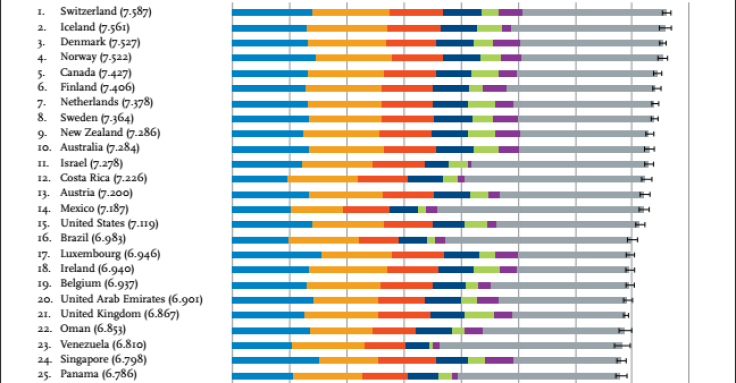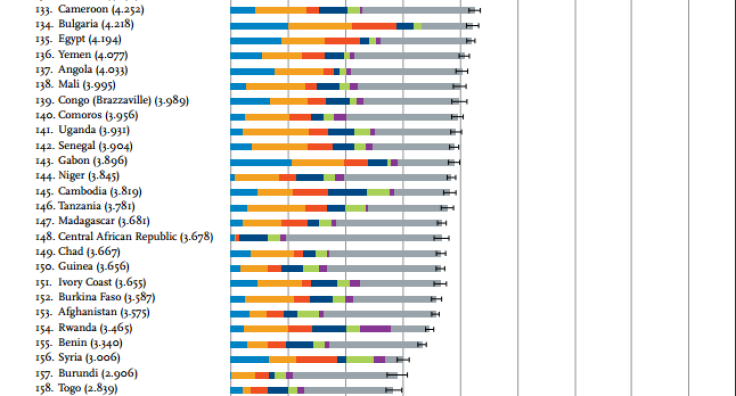World Happiness Report: Find Out Where The US Falls Among The World's Happiest Countries

It seems the key to happiness is being neutral and loving chocolate. The Sustainable Development Solutions Network’s World Happiness Report 2015 has ranked 158 countries on its citizens' happiness. Findings from the report, first published back in 2012, have revealed that Switzerland ranks #1 among the happiest countries around the world.
“The aspiration of society is the flourishing of its members,” Jeffrey Sachs, director of the Earth Institute at Columbia University, said in a statement. “This report gives evidence on how to achieve societal well-being. It’s not by money alone, but also by fairness, honesty, trust, and good health. The evidence here will be useful to all countries as they pursue the new Sustainable Development Goals.”
Researchers from the SDSN focused on six key variables to measure happiness, including real GDP per capita, healthy life expectancy, having someone to count on, perceived freedom to make life choices, freedom from corruption, and generosity. Rankings were also based on Gallup surveys from 2012 to 2015 in which people from over 150 counties were asked to rank their happiness on a scale from 1 to 10.
Switzerland was followed closely by Scandinavian neighbors Iceland, Denmark, and Norway, along with Canada rounding out the top 5. The United States came in at 15 on this year’s World Happiness Report, just behind Mexico at 14. As for countries on the unhappy side of the spectrum, African countries, including Togo, Burundi, and Rwanda, and Middle Eastern and Central Asian countries, including Syria and Afghanistan, fell to the bottom of the list of happiest countries across the globe.

“As the science of happiness advances, we are getting to the heart of what factors define quality of life for citizens,” Helliwell added. “We are encouraged that more and more governments around the world are listening and responding with policies that put well-being first. Countries with strong social and institutional capital not only support greater well-being, but are more resilient to social and economic crises.”



























